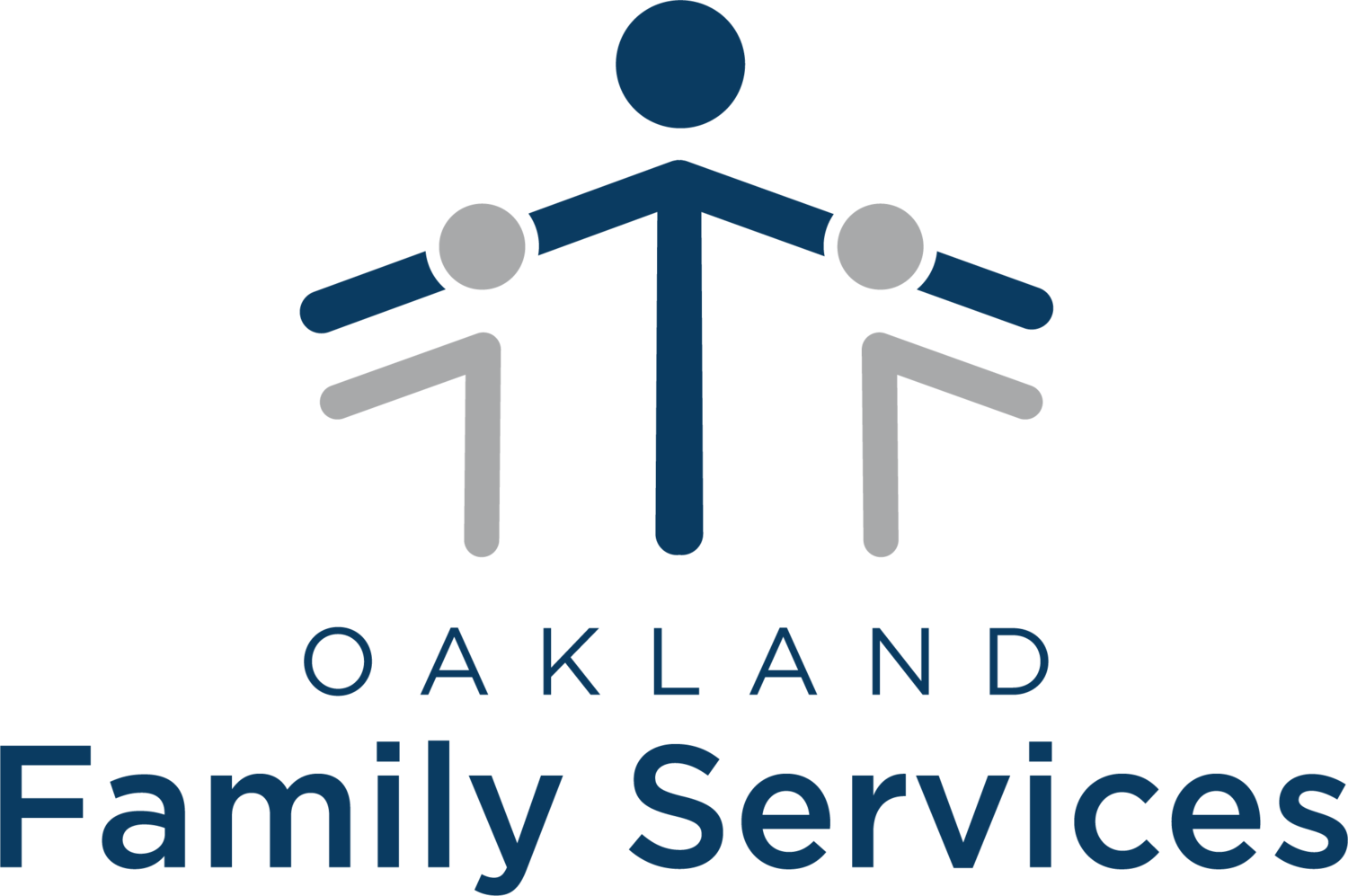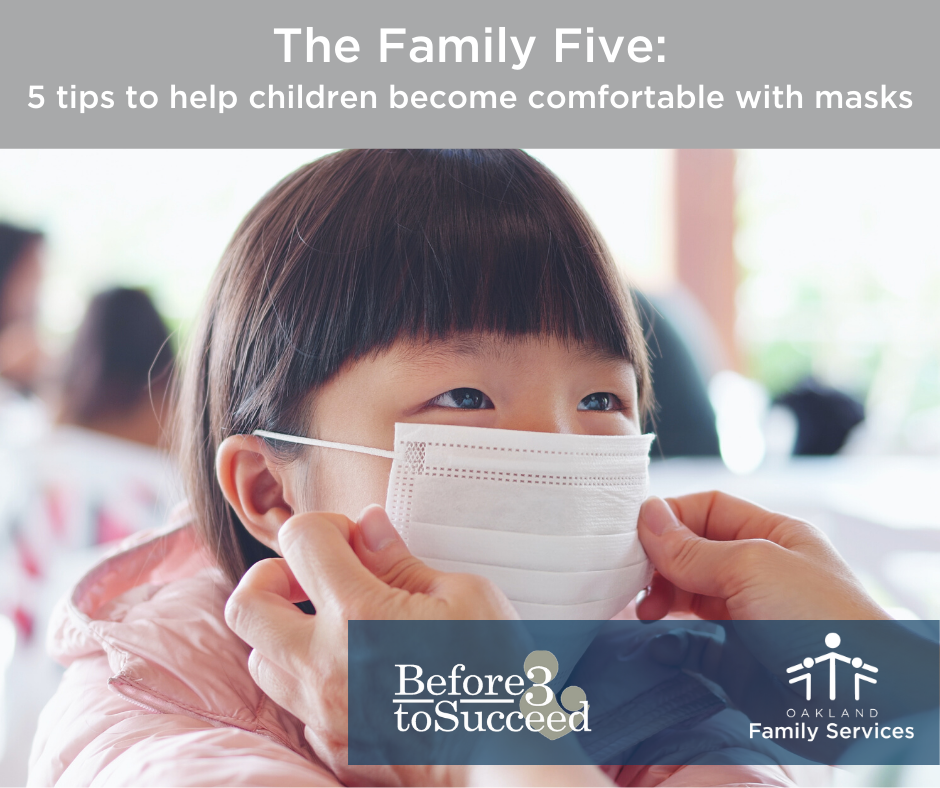The Family Five: 5 tips to help children become comfortable with masks
The Centers for Disease Control and Prevention (CDC) continues to recommend the use of masks to help prevent the spread of COVID-19. While wearing masks in public spaces has become the new normal, it can still be confusing for children to understand. Here are five tips to help children become comfortable with seeing and wearing masks:
Understand age-appropriate expectations: According to Perri Klass of the New York Times, children may find masks frightening due to a lack of facial recognition. Kang Lee, a professor of applied psychology and human development at the University of Toronto, explains that children do not begin developing the ability to recognize faces as a whole until age six. Dr. Lee reports that children younger than six typically pay attention to certain facial features making someone unrecognizable if that facial feature is covered. Try putting a mask on and off multiple times so the child can see it is still you.
Be an example: Children are looking to their parents to understand the many changes that have been occurring. Try not to complain about having to wear a mask so your child does not view it as something negative. If your child sees you consistently wearing a mask, it will become a more normal step to the day.
Provide comfort: When we wear masks, we are taking away facial cues that children use to decipher how someone is feeling. It is important to explain with words and gestures how you are feeling. Children will react in different ways and these differences should be accepted. Reassure your child that you are present and they are safe. Find opportunities to be playful to help calm potentially stressful situations.
Make it fun: There are many fun ideas that will help normalize masks for children. Encourage children to decorate their masks or find a design of something they enjoy. Provide masks to your child to play make believe with., have them put a mask on a stuffed animal, or use the mask to make you a super hero!
Explain the upside: Focus on the good masks can do, rather than the bad things a virus can do. Empower your child by explaining that they are helping others stay healthy. Children enjoy helping and an opportunity to keep others safe is often appealing.
Hello! I am Amanda Robertson, and I am the Early Childhood Mental Health Specialist for Oakland Family Services’ Children’s Learning Centers. I have been working with children for almost 20 years and have one baby girl of my own. I have a master’s degree in counseling from Oakland University and a bachelor’s degree in psychology with an emphasis in child development. My career began with teaching day care and expanded to various positions including ABA therapy, child welfare and residential treatment. I absolutely love what I do and love being a part of Oakland Family Services!


